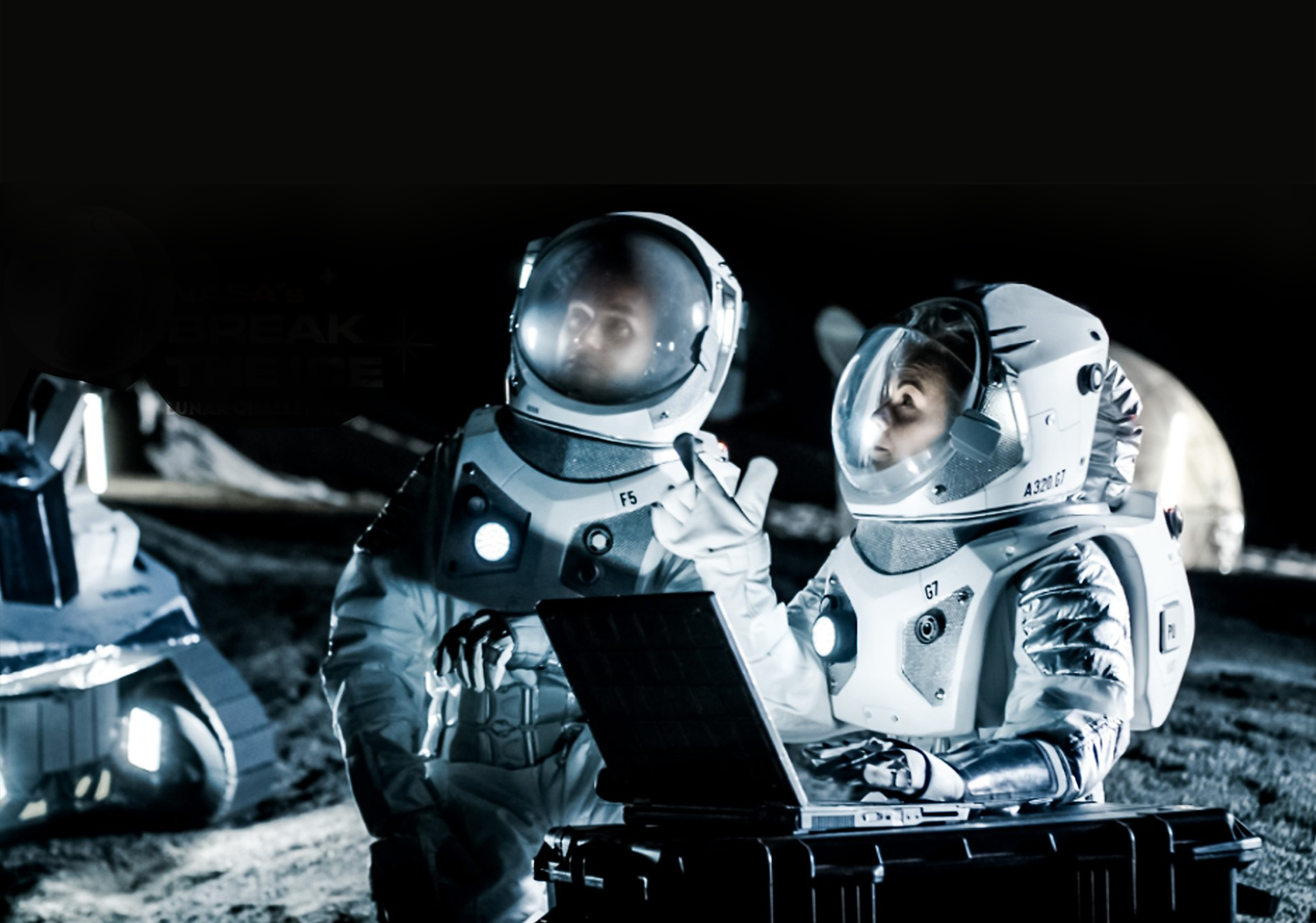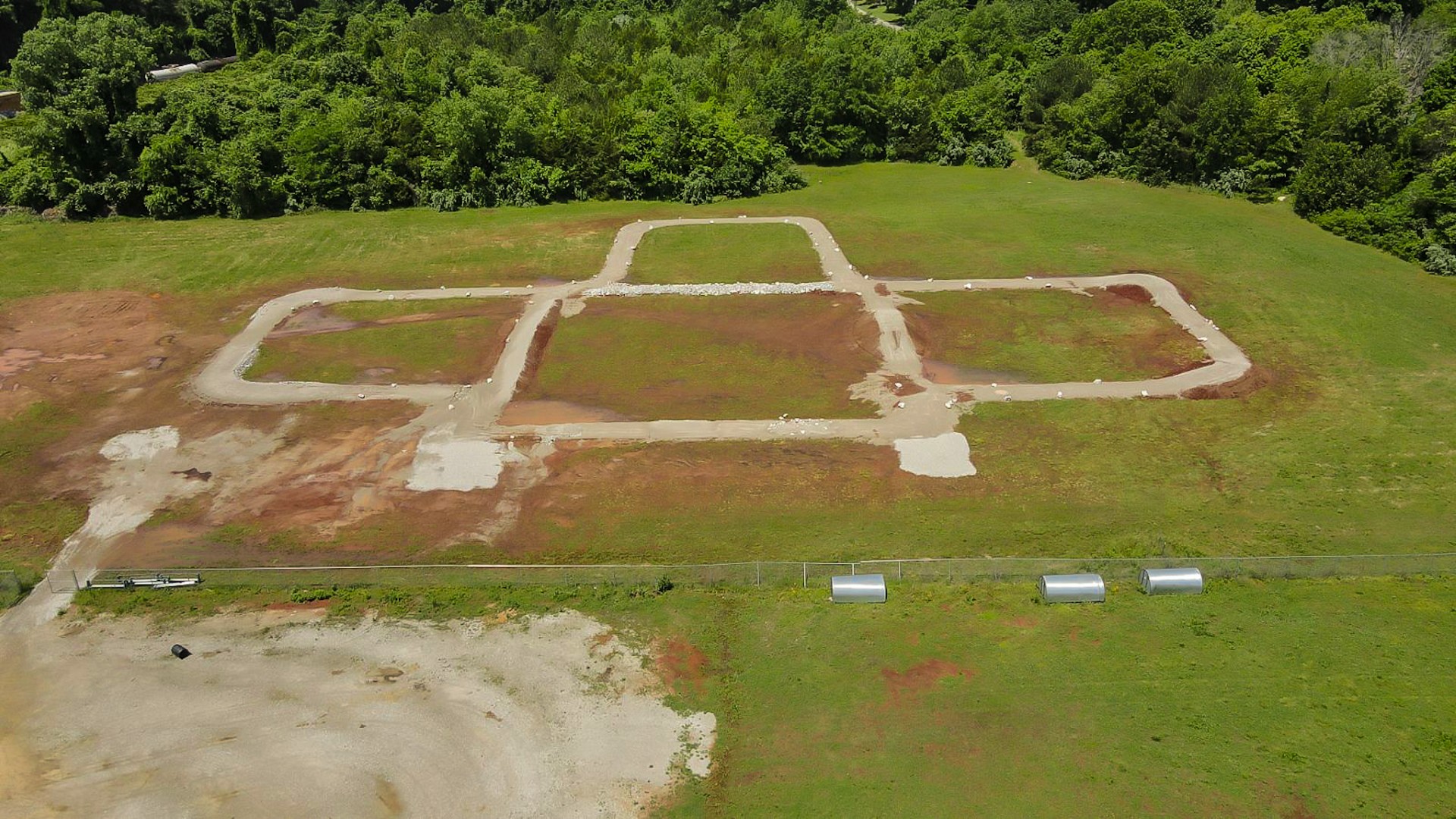Teams Enter Final Phase to Compete for $1.5 Million on June 11–12

Agribition Center Gears Up for NASA’s Thrilling Break the Ice Lunar Challenge
Excitement is building behind AAMU’s Agribition Center as crews transform the terrain, creating a lunar-like landscape for the adrenaline-pumping Final Phase of NASA's Break the Ice Lunar Challenge.
This groundbreaking competition, initiated by NASA in 2020, seeks innovative solutions for excavating icy lunar regolith and delivering crucial resources in the Moon’s extreme environments. The ultimate goal? To develop cutting-edge technologies that will pave the way for a sustained human presence on the Moon.
Competitors from across the globe have battled through Phase 1 and Phase 2, designing and testing their mettle in both indoor and outdoor environments. The challenge culminates in designing, building, and rigorously testing robots capable of withstanding the brutal conditions of the Moon's permanently shadowed regions at the Lunar South Pole. Out of numerous contenders, only six formidable teams have advanced to the finals:
· Starpath Robotics (San Francisco, CA)
· Terra Engineering (Gardena, CA)
· The Ice Diggers (Golden, CO)
· Cislune Excavators (Los Angeles, CA)
· Space Trajectory (Brookings, SD)
· MTU Planetary Surface Technology Development Lab (Houghton, MI)
These teams will converge at AAMU’s Agribition Center from June 11 to 12, vying for victory in the intense Level 3 testing phase, where a staggering $1.5 million in prizes is up for grabs.
“NASA’s Break the Ice Challenge is going out with a bang, and we are so excited to coordinate with Alabama A&M University and its Agribition Center for the final event,” said Kim Krome, Acting Program Manager for NASA Centennial Challenges at the agency’s Marshall Space Flight Center in Huntsville, Alabama. “The unique facilities of the Agribition Center will provide the perfect backdrop to close out this $3.5 million competition.”
The competition will test two critical components: excavation and transportation. In the arena, six identically sized concrete slabs, each about 300 cubic feet, will replicate the challenging conditions of the Moon’s South Pole craters. A gravity-offloading crane system will apply the counterweights on the excavators, to mimick the Moon's one-sixth gravity.

Outside the Agribition Center, challenge teams will take turns on a custom-built track outfitted with slopes, boulders, pebbles, rocks, and gravel to simulate the lunar surface. This volatile surface stretches approximately 300 meters and includes several twists and turns for more intermediate handling.
Each team has one hour to dig as much material as possible or reach their robot’s payload capacity. Up to three top-performing teams will earn the chance to test their solutions inside one of Marshall’s thermal vacuum chambers, replicating the harsh temperature and vacuum conditions of the lunar South Pole.
The stakes are sky-high: the first-place team will take home a colossal $1 million, while the second-place team will earn $500,000.
The NASA Break the Ice Challenge will unfold on Tuesday, June 11, from 8 a.m. to 4:00 p.m., and Wednesday, June 12, from 8:00 a.m. to 4:00 p.m. with an awards ceremony commencing at 5:00 p.m. This exhilarating event is free and open to the public—don't miss your chance to witness history in the making!
(Main photo courtesy of NASA)